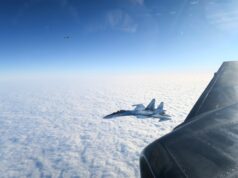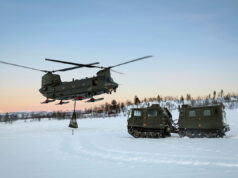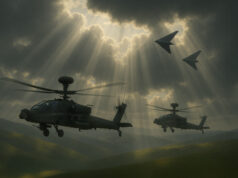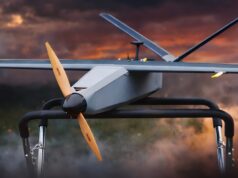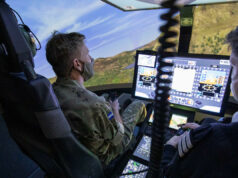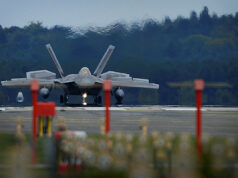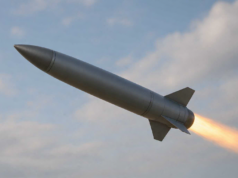Typhoons have attacked an Islamic State defensive position and two sniper teams in Raqqa.
Royal Air Force Tornado, Typhoon and Reaper aircraft have continued to fly daily armed reconnaissance missions against Daesh over Syria and Iraq, and have delivered a number of air strikes against terrorist targets in Raqqa.
According to a Ministry of Defence press release issued this morning, on Monday the 31st of July, two flights of Typhoons, based at RAF Akrotiri, delivered successful attacks with Paveway IV guided bombs against a defensive position from which Islamic State were firing on the Syrian Democratic Forces (SDF), and against two sniper teams.
The UK has been the second largest contributor to the air campaign in Iraq and Syria. UK aircraft have flown over 3,000 missions as part of Operation Shader, and as of the beginning of November 2016 had conducted 1,115 airstrikes against ISIS targets in Iraq and Syria (1,048 and 67 respectively).
In July 2016 the MoD acknowledged that “the RAF has not operated at this sustained operational tempo in a single theatre of conflict for a quarter of a century”.
The Government has consistently maintained that no civilian casualties in Iraq or Syria, to date, have resulted from UK air strikes however it adds “no military operations come without risk, particularly in dense urban environments and against such inhuman Daesh tactics, the RAF continues to take all steps necessary to minimise civilian casualties.”
What is the current status of the air campaign?
In December 2016, it was reported that the Royal Air Force is operating at its most intense for 25 years in a single theatre of operation which far outstripped the UK involvement in Iraq and Afghanistan – RAF jets have dropped 11 times more bombs (1,276 strikes) on Syria and Iraq in the preceding 12 months than they had in the busiest year of action in Afghanistan a decade previously.
The cost of the operations against Islamic State and other details of the campaign were revealed in a briefing paper. In March 2015 the MoD confirmed that the net additional costs of the military air operation would be met from the Treasury Special Reserve; while the costs of training and equipping the Iraqi and Kurdish security forces, and the provision of key enablers, would be met from the MOD’s Deployed Military Activity Pool (DMAP).
In answer to a parliamentary question in September 2016 the MoD set the costs of the operation, between August 2014 and the 31st of March 2016, at £265 million (£45 million in the 2014-15 financial year, and £220 million in the 2015-16 financial year).



